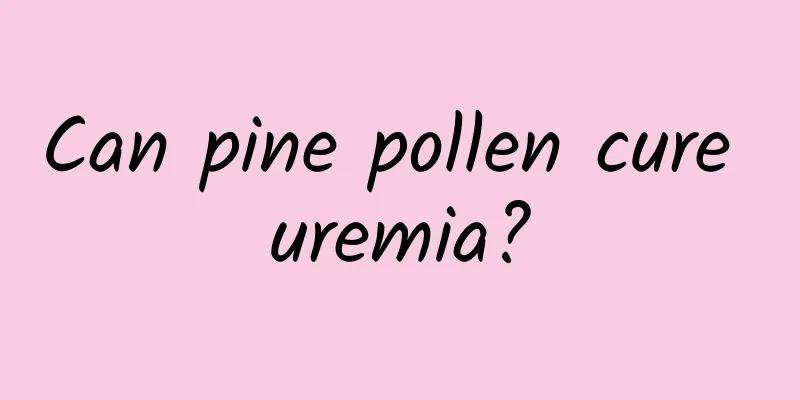The efficacy and function of Dioscorea zingiberensis

|
Dioscorea sphenanthera is a very nutritious and precious medicinal material. Eating Dioscorea sphenanthera regularly can have very good effects and functions. So how should we eat Dioscorea sphenanthera? What specific benefits can eating Dioscorea sphenanthera bring to our body? We need to understand some professional knowledge of Dioscorea sphenanthera to answer these questions. [Other name] Coptis chinensis, wild [Source] Medicinal material source: The rhizome of Dioscorea zingiberensis, a plant of the Dioscoreaceae family. [Original form] Dioscorea zingiberensis is a twining herbaceous vine with slender stalks. The rhizome is horizontal, cylindrical, with nodes and internodes. Stem left-handed, smooth and hairless. Simple leaves are alternate; petiole is shorter than leaf blade; leaf blade is triangular, acuminate or caudate at apex, broadly cordate at base, entire or wavy margin, smooth and glabrous on both sides. Flowers are dioecious. Male inflorescence racemose, solitary, rarely twin; male flowers pedunculate; perianth light yellow, 6-lobed at apex, slightly recurved when blooming; 6 stamens, 3 anthers broadly dissected, the other 3 in a letter-shaped pattern, often clustered together when blooming. The female inflorescence is the same as the male inflorescence, with the reduced stamens in the form of flower dots. The capsule is triangular, each rib is wing-shaped and nearly half-moon-shaped; the seeds are borne in the middle of the axis of each room, and have membranous wings around them when ripe. [Habitat distribution] Ecological environment: Grown on coastal rocks, sparse valley woods, bamboo forests or inland valleys and streamside thickets at an altitude of 800-1100m. [Properties] 1. Property identification: The rhizome is slender and cylindrical, with few branches and a diameter of 0.5-1.5cm. The surface is light gray-yellow, with obvious ring nodes and internodes. It is hard and has a pale yellow cross section. The fresh product has sticky texture. In some areas, it is cut into thin slices, and the cut surface is light yellow. It has a faint smell and a bitter taste. [Chemical composition] The underground part contains diosgenin, yamogenin, tokorogenin and neotokorogenin. : : : : : : : : : : : : : : : 【Nature and flavor】 Bitter; Pungent; Neutral 【Functions and indications】 Treat rheumatism; relax muscles and activate blood circulation. It is used to treat rheumatic pain, tendon and vein stiffness, limb numbness, traumatic injury, and fatigue. [Usage and Dosage] For oral use: decocted in water, 6-15g; or soaked in wine. For external use: take appropriate amount and mash it for application. 【Excerpt】 Chinese Materia Medica Everyone should know about the medicinal value of Dioscorea zingiberensis. We should pay more attention to information in this area so that we can be prepared when encountering problems and avoid panic. |
<<: The efficacy and function of iris root
>>: Effects and functions of Siberian Polygonum
Recommend
What is the best time to eat breakfast? Is it harmful to take a nap? You will no longer be troubled after reading this
After getting up in the morning, a new day begins...
Drink Artemisia selengensis soaked in water
The effects of Artemisia willow are quite common....
What are the meatballs in hot pot made of? Don’t buy these three types!
Expert in this article: Wang Silu, National Senio...
Can I eat Lingzhi during my menstrual period?
Women need to be carefully cared for during their...
Is faster-than-light travel coming? Don't worry, listen to what the experts say
The theory of relativity requires that "the ...
Soy sauce bottles, air conditioner remote controls...you may have been using these common daily necessities incorrectly!
@aaaaa✨Cathy ✨ @Bibb Screw @XiXiBuXi @Lingxin Guo...
Best Herbal Medicine for Itchy Skin
Skin itching is a common occurrence. Many people ...
The efficacy and function of fresh ginseng
In daily life, ginseng is very familiar to many p...
What are the medicinal values of wolfberry?
Many friends put some wolfberries when cooking so...
Prologue to the Kingdom of Genes: What is genetic material?
Produced by: Science Popularization China Author:...
The efficacy and function of big fish loach skewers [picture]
There are many types of Chinese medicine. When we...
What is this saltwater fish that has a strange appearance, a difficult name to write, and is difficult to tell male from female?
The brindle fish, commonly known as "butterf...
The efficacy and function of Asarum truncatum[picture]
Many people are not very clear about the Chinese ...
The efficacy and function of Platycodon grandiflorum
Regarding Platycodon grandiflorum, I think some p...
The efficacy and function of Artemisia oleracea
After thousands of years of sedimentation and acc...









